The 4th China Autonomous Driving and Artificial Intelligence Law Summit was successfully held in Shenzhen
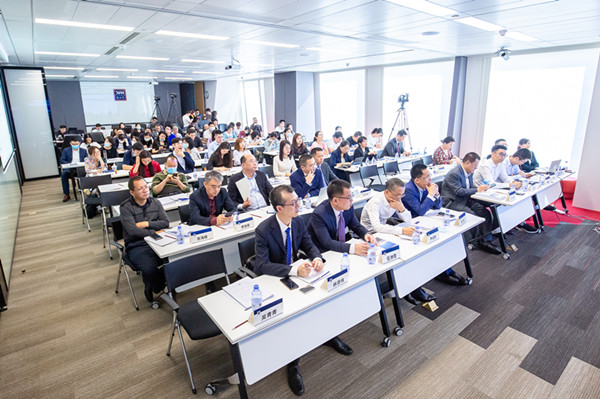
The conference was co-sponsored by the Shenzhen Lawyers Association, Beijing DHH Law Firm and Shenzhen Branch. The fourth batch of LexisNexis and Qingdao Municipal Government went to Shenzhen to realize the training team, Shenzhen Big Data Industry Development Promotion Association, Zhongnan The Digital Economy Research Institute of the University of Economics and Law, the China Corporate Legal Alliance, and the Legal Advisory Committee of the China Association of Small and Medium-sized Enterprises (CACC) co-organized support, and received the strategic support of the Rule of Law Daily Legal Person Think Tank and the special promotion of the legal cluster platform.
Xin Xiaotian, partner of Beijing DHH Law Firm and Director of the Internet and TMT Business Center of DHH, served as the moderator. At the beginning of the summit, Yin Chenggang, vice chairman of the Shenzhen Bar Association, on behalf of the organizer, the Shenzhen Bar Association, expressed appreciation for the conference’s efforts to actively explore legal issues in the field of autonomous driving and artificial intelligence. Autonomous driving brings new opportunities for lawyers to explore the frontier business. At the same time, it also brings more challenges and encourages Shenzhen lawyers to broaden their horizons and continue to cultivate themselves based on an international perspective.
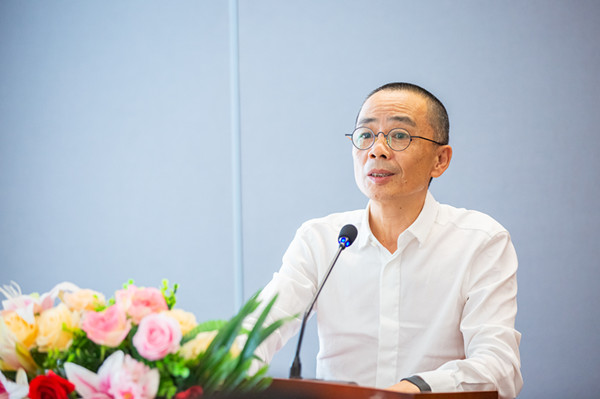
Director Lan Caiming, Director of DHH Shenzhen Office, reviewed DHH's attention and achievements in the field of autonomous driving, and continued to focus on the efforts of enterprises, academia and lawyers through a series of summits with the services in new areas of autonomous driving and artificial intelligence.
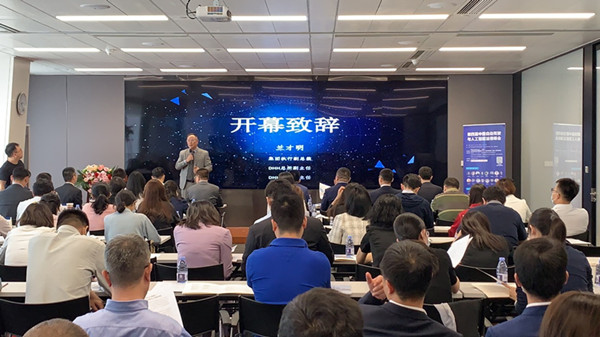
The summit officially kicked off with a theme sharing by Professor Wu Shenkuo, Secretary-General of the Research Center of the Internet Society of China and Executive Director of the International Center for Internet Rule of Law of Beijing Normal University. Professor Wu analyzed the policy and strategic requirements of the latest data security law and the personal information protection law draft legislation, introduced in detail the main content of the two important legislation, and combined the status quo and challenges of autonomous driving to propose security countermeasures and data security governance plans, ahared several excellent cases and precautions in corporate data security governance.

Shi Lei, secretary-general of the Internet and TMT Business Center of Beijing DHH Law Firm, introduced the main content of recent important documents in the field of autonomous vehicles in Europe, such as the progress of technical regulations of the GRVA working group of the Economic Commission for Europe, and the European Union Self-driving vehicle strategy, EU area automatic vehicle examination and exemption procedure guide, Internet of Vehicles personal data processing guide, etc., summarized the current European legislation mainly focuses on the unification of technical standards, and more guidance documents such as strategies and guidelines. With security and data protection as the core content, through summarizing good practices and suggestions, we hope to gradually establish and improve rules.
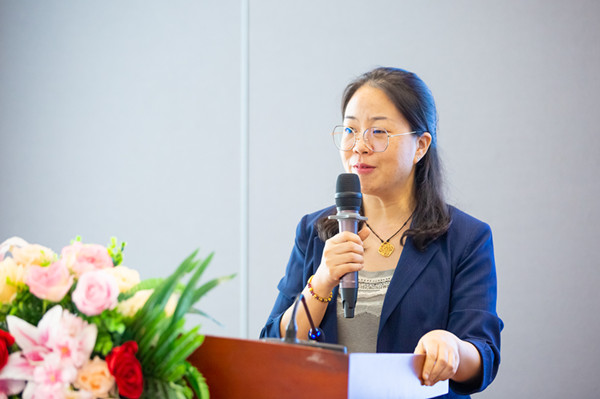
Yao Yuexi, senior partner of Beijing DHH (Shanghai) Law Firm and Director of the Cross-border Investment and M&A Business Center, shared the legal issues of the "going out" of autonomous driving and artificial intelligence companies and the guests, and proposed that they will face four important issues of cross-border mergers and acquisitions and cooperation, data security and protection, division of legal responsibilities, and changes in regulatory models in the process of going out. It will also analyze the requirements and requirements from the perspectives of the US security review system and global data cross-border compliance.
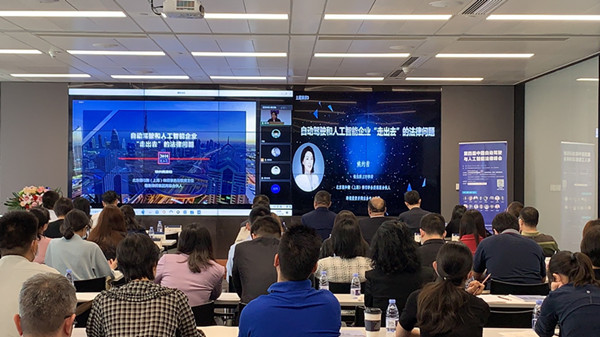
Wen Haolun, Sales Manager of LexisNexis South China, conducted an intelligent database search for LexisNex’s products, patents, research report data, and the high attention and rapid growth of artificial intelligence and autonomous driving, and explained Lexis’ highly intelligent information services. The role in legal construction.
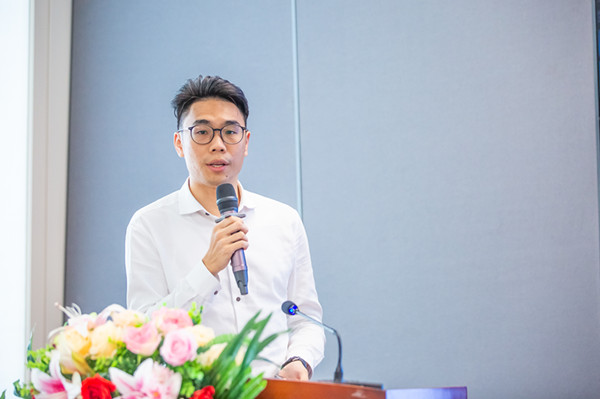
So far, the first part of the first half of the summit on the cutting-edge legal research on autonomous driving has successfully concluded. The guests had a rich exchange during the coffee break.
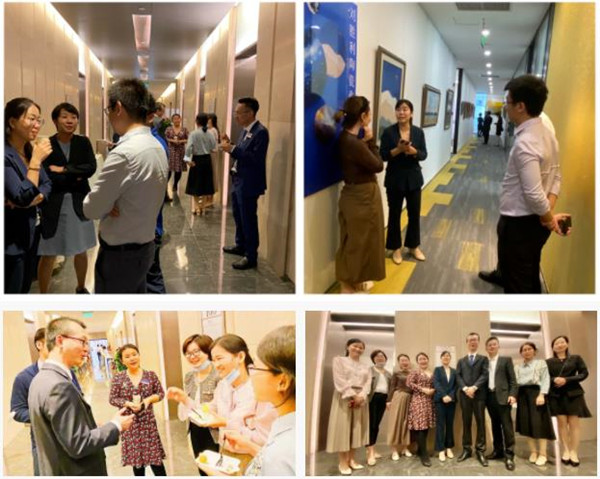
After the coffee break, Professor Wang Chunhui, chief technology consultant of Deheng Law Group, professor of Zhejiang University, PhD supervisor, and Professor Yang Yanchao, researcher of the Institute of Law of the Chinese Academy of Social Sciences and director of the Center for Science, Technology and Law, sent expert messages to the summit in a remote way. Professor Chunhui Wang pointed out that autonomous vehicles should attach importance to edge computing technology to ensure safety. The new generation of artificial intelligence should focus on legal, ethical and social issues to study together to ensure healthy development. It also proposed that the development of modern artificial intelligence should embody the "people" as the center, prioritize the benefits to the environment, and eliminate negative impacts. Professor Yang Yanchao pointed out that artificial intelligence has brought many changes. The traditional principle of infringement has been iterated from the principle of human-centered fault to the principle of product quality responsibility, challenging the traditional causality, and the understanding of the fair value of the law has changed. Lawyers are facing opportunities for new businesses, new rules and new models during this period, so the holding of this summit is of great value.

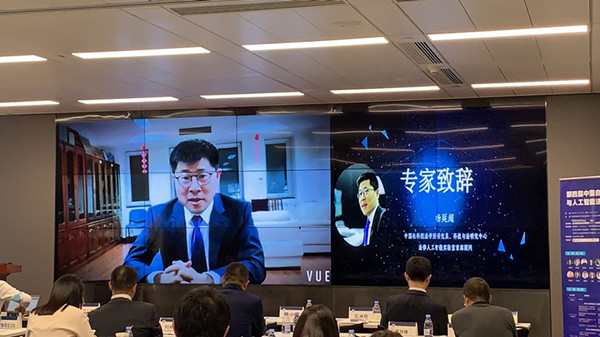
Cao Jianfeng, a senior researcher at Tencent Research Institute, delivered a keynote speech on the responsibilities and supervision of autonomous vehicles in foreign legislation trends. Teacher Cao discussed the major changes brought about by artificial intelligence by the latest autonomous driving technologies and products, and pointed out that autonomous driving laws and policies involve six major issues: access, safety supervision, responsibility, insurance, data protection and ethics. Combined with China's current tort liability rules, it analyzes in detail the challenges to traditional liability frameworks such as fault liability and product liability, and introduces the overall exploration of artificial intelligence legal liability abroad.
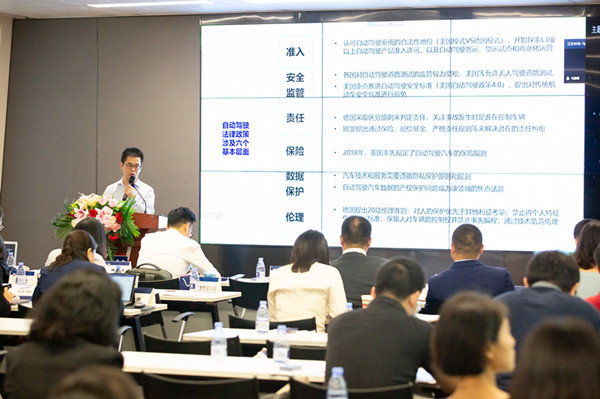
Lawyer Liu Ganghua, a senior co-partner of Beijing DHH (Shenzhen) Law Firm, started from the discussion caused by Microsoft's virtual girlfriend on Double Eleven, and analyzed the copyright issues in the current development of artificial intelligence, and introduced the Tencent Robot Dreamwriter case. The verdict and objections discussed several possible trends in copyright protection of works created by artificial intelligence.
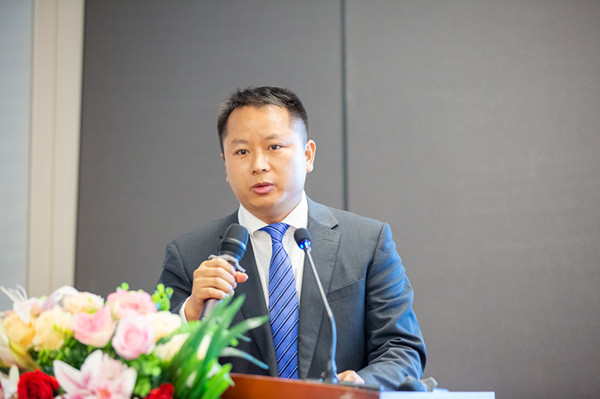
Lawyer Fan Peiwei of Beijing DHH Law Firm introduced the current status of patent protection for autonomous driving worldwide, focusing on the patent layout of an important technology-lidar technology, and also briefly analyzed the situation of autonomous driving patents in China.
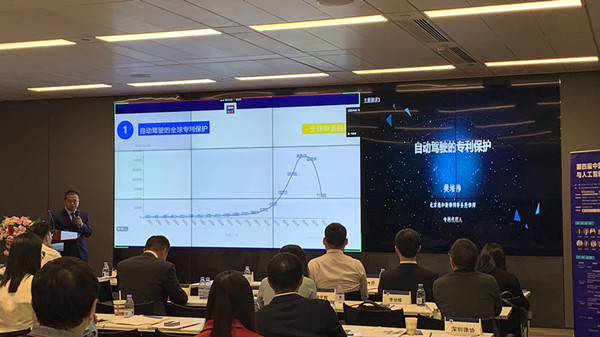
After the second part of the special lecture, we entered the roundtable discussion session of industry representatives. This session was hosted by Wen Guihe, Secretary of the Party Branch and Senior Partner of Beijing DHH (Shenzhen) Law Firm, and invited four guests from academia, enterprises and the media: Wu Qingqing, Director of the BYD Passenger Car Business Group Desay SV Motors Legal Director Lin Xianwei, Executive Dean Pan Helin (online) of the Digital Economy Research Institute of Zhongnan University of Economics and Law, and Wu Zhouqi, Secretary General of the "Corporate Think Tank" of the Rule of Law Daily participated. From different job identities and consumer roles, everyone had a lively exchange on the legal concerns of autonomous driving.
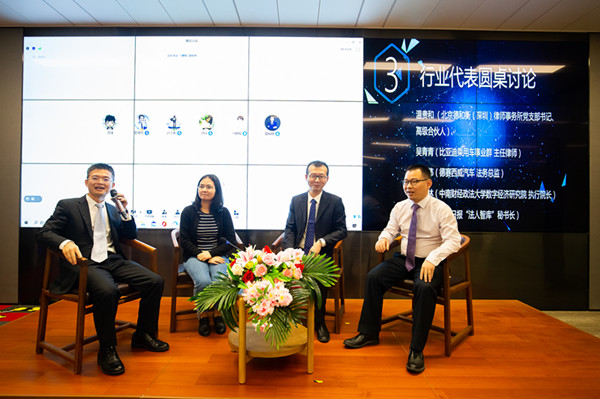
In the heated round table discussion, the 4th Autonomous Driving Legal Risk Prevention Practice Forum ended successfully. Wu Zhouqi, Secretary General of the Legal Person Think Tank of the Rule of Law Daily, made the final speech. This summit is a key event of DHH's innovative business and will be held continuously. Please continue to pay attention.




